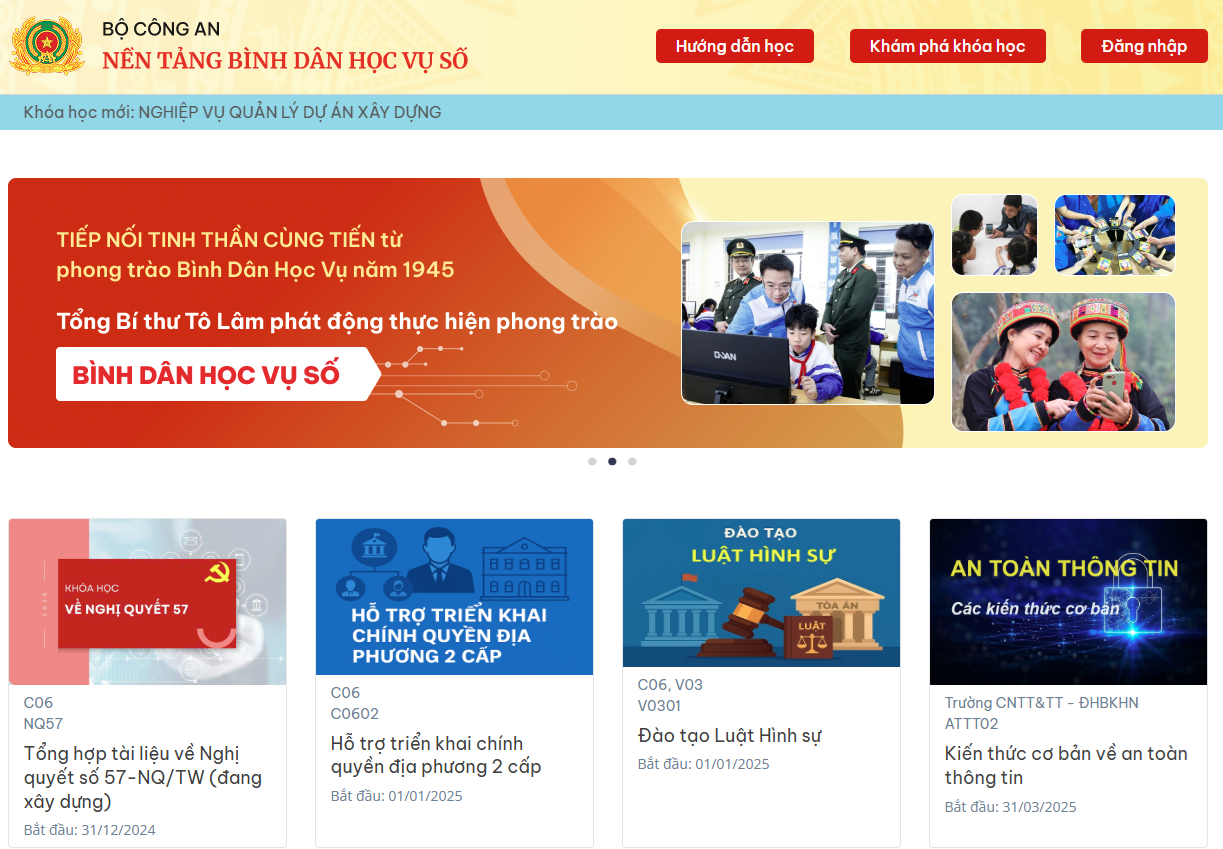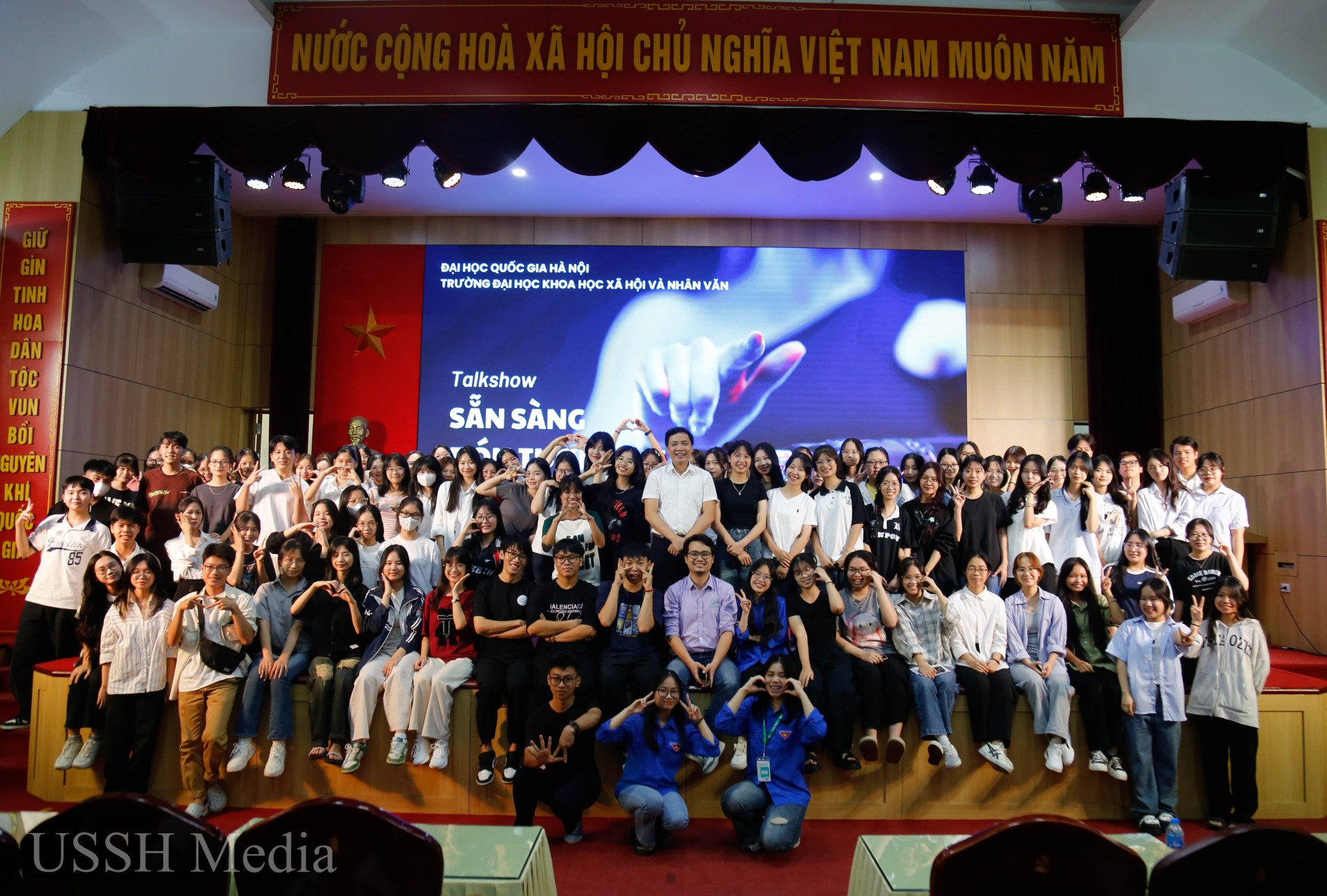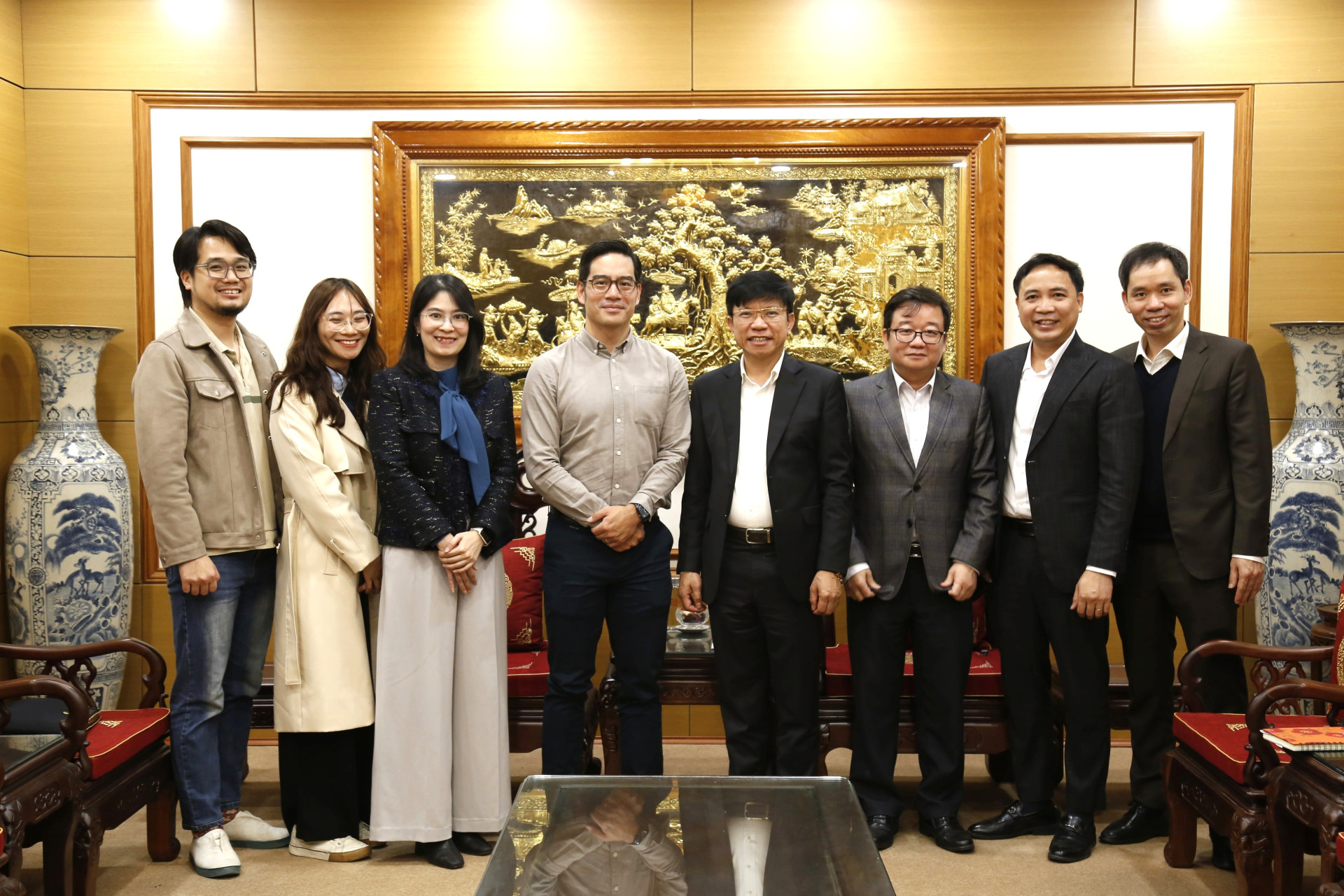“Digital Literacy for All” Course: Equipping the Young Generation with Digital Skills
According to Associate Professor Dr. Do Van Hung - Head of Information - Library Department, University of Social Sciences and Humanities, the course
Popular education numberis built on the Digital Competency Framework for Learners issued by the Ministry of Education and Training (Circular No. 02/2025/TT-BGDDT, dated January 24, 2025). This is the first set of standards that specifically stipulates groups of digital skills that students need to achieve to study and work effectively in the digital age.
The competency framework includes 6 competency domains with 24 component competencies, including:
- Data and information mining
- Communication and collaboration in digital environments
- Digital content creation
- Safety in the digital environment
- Problem solving
- Artificial intelligence applications
The course provides students with knowledge and skills in using information and communication technology to search, evaluate information, create content, work in online groups and solve complex problems, helping them confidently study, research and integrate in modern academic and professional environments.

The course "Digital Literacy for the People" has now been widely deployed on the national online platform, students nationwide can access it to study, practice digital skills, and prepare for future careers in the digital age.
VNU-USSH participates in building the course "Digital Literacy"
Within the framework of the course, the University of Social Sciences and Humanities undertakes Module 2: Communication and cooperation in the digital environment. Associate Professor, Dr. Do Van Hung said that this module equips learners with the ability to interact, share information, collaborate online and fulfill digital citizenship responsibilities. The course content includes:
- Select and use appropriate digital communication tools.
- Manage and share information securely on digital platforms.
- Using digital technology to fulfill civic responsibility
- Cooperation through digital technology.
- Practice civilized and respectful communication online.
- Digital identity management to protect personal information and online reputation.
Associate Professor Dr. Do Van Hung introduced an innovative model of applying AI in teaching at the 2nd Regional DS2S Conference in Leipzig - Germany
In particular, the content of this module is not only provided directly on the Digital Popular Education platform but also flexibly integrated into the School's training program, such as: Integration into soft skills modules, university learning methods, and new modules such as Introduction to digital technology and AI applications, AI applications in study and career..., helping students practice right from the first year. Practical application in group study activities, interdisciplinary projects, student scientific research, where students regularly use digital tools to exchange, store and present learning products.
This content is also deployed through extracurricular training courses and on the LMS system of the University of Social Sciences and Humanities, creating opportunities for students to proactively practice communication and collaboration skills in a digital environment.
Thanks to that, students not only master knowledge, but also form habits of communication, cooperation and professional behavior, ready to meet the requirements of study, research and the digital labor market.
A talk show about AI for students of the University of Social Sciences and Humanities
Pioneering digital transformation in the Social Sciences and Humanities sector
Notably, the University of Social Sciences and Humanities is not only the first university in Vietnam to issue a Digital Competency Framework for students but also plays a key policy advisory role for the Ministry of Education and Training in the process.
develop and promulgate Circular No. 02/2025/TT-BGDDT- The first legal document regulating the Digital Competency Framework for learners nationwide.

According to Associate Professor Dr. Do Van Hung, many people used to think that schools in the social sciences and humanities would be slower in applying technology than those in the natural sciences or engineering. But in fact, the specific characteristics of the industry, placing people, knowledge and innovation at the center, have created a strong driving force for schools to take the lead in digital transformation.
The issuance of the Digital Competency Framework not only affirms the strategic vision of a leading research university, but also demonstrates the school's commitment to equipping students with essential skills for the 4.0 era.
In addition, the University of Social Sciences and Humanities also affirmed its strong commitment to innovating teaching methods through the implementation of MOOCs electronic lectures. This is an important step to provide learners with new knowledge with digital learning methods, meeting the requirements of high-quality human resources in the 4.0 era.
MOOCs lectures are designed with a learner-centered philosophy, based on 4 principles: Personalized learning, Problem solving, Microlearning, Active learning. In particular, the School has included MOOCs electronic lectures in the Applied Informatics course with 11 modules that are advanced, updated and practical in design.
The University of Social Sciences and Humanities has had many cooperation projects with META Group on AI applications in teaching, learning and research.
Digital transformation in education is not only about applying technology, but also about innovating thinking, teaching methods and university administration - factors that the field of Social Sciences and Humanities has many advantages to lead.
By participating in the development of learning materials and implementing the course "Digital Literacy for the People", the University of Social Sciences and Humanities continues to affirm its core values of "Pioneering - Creativity - High Quality - High Level", actively contributing to improving digital capacity for Vietnamese students, while affirming its pioneering position in the process of digital transformation of higher education.
Related news:
USSH accompanies the Ministry of Education and Training to develop and guide the implementation of Circular 02 on the Digital Competency Framework for learners.
VNU-USSH is the first university to issue a Digital Competency Framework for students.
Launching digital competency framework for students




